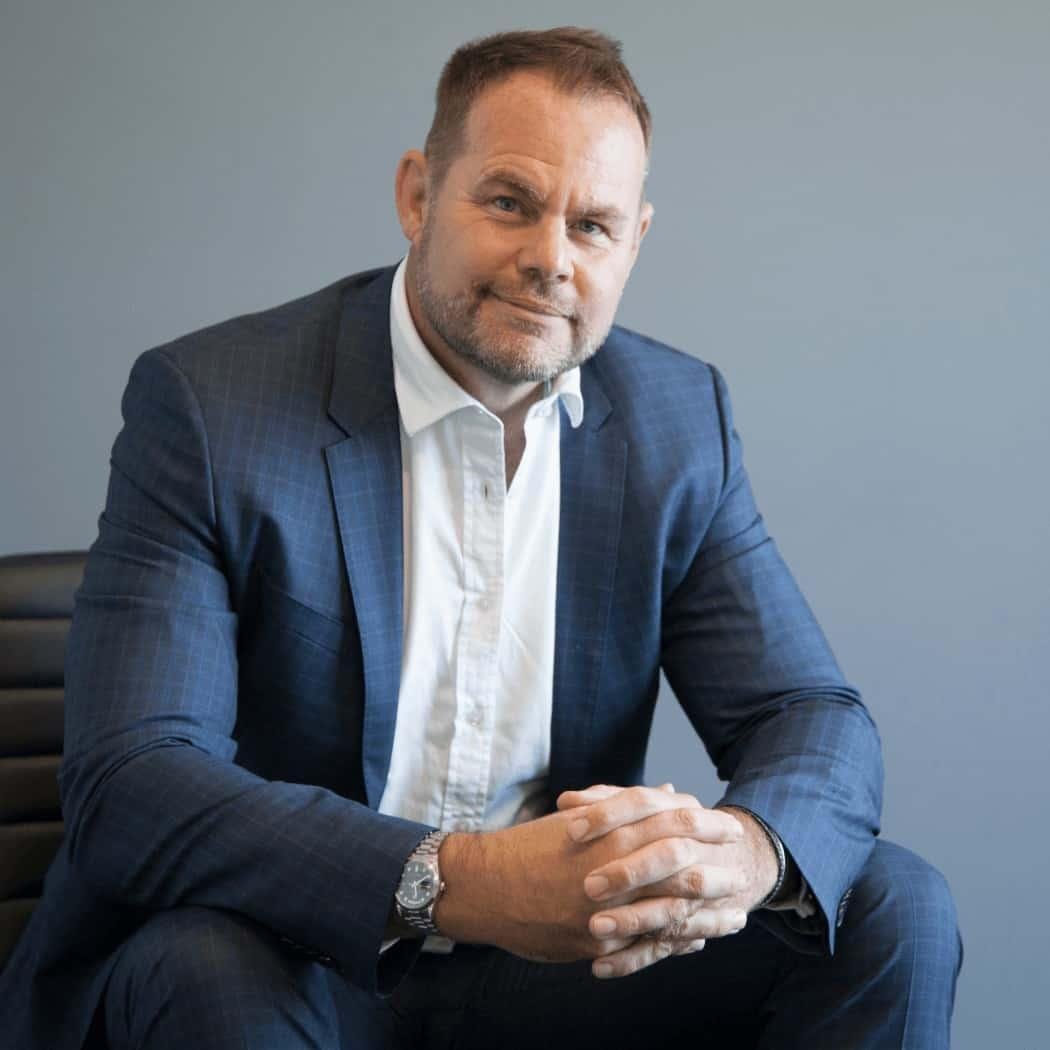- Male
- 12/09/1981
- Followed by 5 people
Friends 13
Recent Updates
- Australia vs. U.S. Stocks: Andrew Baxter Reveals Where to Invest in 2025
In today’s market, deciding where to invest is more important than ever. Both the Australian and U.S. stock markets offer distinct advantages. Understanding their differences can help you make smarter investment decisions.
Home Bias vs. Global Opportunity
Many Australian investors stick with local stocks due to familiarity, timezone convenience, and local fund bias. However, Australia represents just under 2% of the global stock market, while the U.S. accounts for nearly 45%. A globally diversified portfolio should reflect this gap — but rarely does.
Recent Market Performance
Australia’s market recently posted an 8% gain for the month, slightly ahead of the U.S. at 7.5%. Year-to-date, Australian stocks are up around 1%, while U.S. markets dipped 0.4%. Still, history shows the U.S. has consistently outperformed over the long term thanks to its broader sector diversity and stronger market structure.
Sector Differences: Concentration vs. Diversity
Australia’s stock market is heavily concentrated in banks and resource companies. This makes it sensitive to global commodity prices and China’s economy. In contrast, the U.S. market includes tech giants like Apple and Microsoft, along with diverse sectors such as healthcare, industrials, and consumer goods.
Dividends vs. Growth
Australian stocks are attractive for their high, tax-efficient dividends — ideal for retirees or SMSFs. The U.S. market, however, prioritizes reinvestment and innovation, favoring long-term capital growth. Think of Netflix: no dividends, but massive share price growth.
Tax Considerations
Australia’s franking credit system makes local dividends more appealing. For U.S. investments, filing a W-8BEN form helps avoid double taxation and ensures proper treatment under Australian tax law.
Investing in U.S. Stocks: Easier Than You Think
Many investors are put off by the idea of U.S. trading due to perceived complications. In reality, platforms now make it easy — offering low-fee currency conversion, “snap match” trading, and support with tax paperwork.
Which Market Is Right for You?
There’s no one-size-fits-all answer. If income is your goal, Australian stocks may be better. For growth-focused investors, the U.S. offers more potential. The best strategy often combines both to achieve balance and diversification.
Remember, investing rewards action — not hesitation. For tailored advice, consult a licensed financial advisor. And don’t forget to check out www.wealthplaybook.com.au for our best-selling guide, full of strategies to help you build lasting wealth.
#andrewbaxter
#stockmarket
#investingtips
#marketcomparison
#globalinvesting
#financegoals
#australiastocks
#stockmarketnews
#investingeducationAustralia vs. U.S. Stocks: Andrew Baxter Reveals Where to Invest in 2025 In today’s market, deciding where to invest is more important than ever. Both the Australian and U.S. stock markets offer distinct advantages. Understanding their differences can help you make smarter investment decisions. Home Bias vs. Global Opportunity Many Australian investors stick with local stocks due to familiarity, timezone convenience, and local fund bias. However, Australia represents just under 2% of the global stock market, while the U.S. accounts for nearly 45%. A globally diversified portfolio should reflect this gap — but rarely does. Recent Market Performance Australia’s market recently posted an 8% gain for the month, slightly ahead of the U.S. at 7.5%. Year-to-date, Australian stocks are up around 1%, while U.S. markets dipped 0.4%. Still, history shows the U.S. has consistently outperformed over the long term thanks to its broader sector diversity and stronger market structure. Sector Differences: Concentration vs. Diversity Australia’s stock market is heavily concentrated in banks and resource companies. This makes it sensitive to global commodity prices and China’s economy. In contrast, the U.S. market includes tech giants like Apple and Microsoft, along with diverse sectors such as healthcare, industrials, and consumer goods. Dividends vs. Growth Australian stocks are attractive for their high, tax-efficient dividends — ideal for retirees or SMSFs. The U.S. market, however, prioritizes reinvestment and innovation, favoring long-term capital growth. Think of Netflix: no dividends, but massive share price growth. Tax Considerations Australia’s franking credit system makes local dividends more appealing. For U.S. investments, filing a W-8BEN form helps avoid double taxation and ensures proper treatment under Australian tax law. Investing in U.S. Stocks: Easier Than You Think Many investors are put off by the idea of U.S. trading due to perceived complications. In reality, platforms now make it easy — offering low-fee currency conversion, “snap match” trading, and support with tax paperwork. Which Market Is Right for You? There’s no one-size-fits-all answer. If income is your goal, Australian stocks may be better. For growth-focused investors, the U.S. offers more potential. The best strategy often combines both to achieve balance and diversification. Remember, investing rewards action — not hesitation. For tailored advice, consult a licensed financial advisor. And don’t forget to check out www.wealthplaybook.com.au for our best-selling guide, full of strategies to help you build lasting wealth. #andrewbaxter #stockmarket #investingtips #marketcomparison #globalinvesting #financegoals #australiastocks #stockmarketnews #investingeducation0 Comments 0 Shares - Money & Investing with Andrew Baxter: Australia’s #1 Wealth Creation Podcast
In a world where financial freedom is the new currency of success, “Money & Investing with Andrew Baxter” has emerged as Australia’s #1 wealth creation podcast. Hosted by the renowned entrepreneur and financial markets expert Andrew Baxter, this podcast empowers Australians to take charge of their financial futures with practical, no-nonsense advice on money management, investing, and economic trends.
Why This Podcast Stands Out
With thousands of finance-related podcasts available, what makes Andrew Baxter’s show a cut above the rest?
Expertise That Matters
Andrew Baxter is not just a podcast host — he’s a seasoned trader, financial educator, and the founder of Australian Investment Education. With over two decades of experience in the financial markets, Baxter brings a wealth of knowledge grounded in real-world success.
Actionable Strategies
Unlike other shows that stay surface-level, “Money & Investing” dives deep into actionable wealth-building strategies — from stock market insights and property investing tips, to superannuation hacks and tax minimization techniques tailored for the Aussie audience.
Australia-Focused Content
Many global finance shows cater to American or international audiences. Baxter speaks directly to Australians, focusing on the unique challenges and opportunities within Australia’s economic landscape.
Relevant, Timely Topics
From unpacking the latest RBA interest rate decisions to decoding market volatility, Baxter ensures every episode is timely, topical, and deeply relevant to both novice and seasoned investors.
Popular Podcast Topics
Here are some standout topics listeners love:
“How to Start Investing in the ASX with $1,000”
“Top Tax Strategies Every Aussie Investor Should Know”
“The Psychology of Money: Mastering Mindset for Financial Growth”
“Crypto vs Stocks: Where Should You Invest in 2025?”
“Women and Wealth: Closing the Gender Investing Gap in Australia”
Who Should Listen?
This podcast is perfect for:
Young professionals starting their investment journey
Seasoned investors seeking advanced market insights
Business owners aiming to build long-term wealth
Anyone looking to retire earlier and richer
Where to Listen
You can tune into Money & Investing with Andrew Baxter on all major platforms:
Spotify
Apple Podcasts
Google Podcasts
Or directly via the Australian Investment Education website
Final Thoughts
If you’re serious about mastering your money, making smarter investments, and building generational wealth, “Money & Investing with Andrew Baxter” is your go-to podcast. With credible insights, practical tools, and expert guidance — it’s no surprise this is Australia’s top-rated show for wealth creation.
https://moneyandinvesting.com.au/#free-training
#StockSelectionMasterclass
#OptionsMastery
#InvestingEducation
#TradingStrategies
#RiskManagement
#TechnicalAnalysis
Money & Investing with Andrew Baxter: Australia’s #1 Wealth Creation Podcast In a world where financial freedom is the new currency of success, “Money & Investing with Andrew Baxter” has emerged as Australia’s #1 wealth creation podcast. Hosted by the renowned entrepreneur and financial markets expert Andrew Baxter, this podcast empowers Australians to take charge of their financial futures with practical, no-nonsense advice on money management, investing, and economic trends. Why This Podcast Stands Out With thousands of finance-related podcasts available, what makes Andrew Baxter’s show a cut above the rest? Expertise That Matters Andrew Baxter is not just a podcast host — he’s a seasoned trader, financial educator, and the founder of Australian Investment Education. With over two decades of experience in the financial markets, Baxter brings a wealth of knowledge grounded in real-world success. Actionable Strategies Unlike other shows that stay surface-level, “Money & Investing” dives deep into actionable wealth-building strategies — from stock market insights and property investing tips, to superannuation hacks and tax minimization techniques tailored for the Aussie audience. Australia-Focused Content Many global finance shows cater to American or international audiences. Baxter speaks directly to Australians, focusing on the unique challenges and opportunities within Australia’s economic landscape. Relevant, Timely Topics From unpacking the latest RBA interest rate decisions to decoding market volatility, Baxter ensures every episode is timely, topical, and deeply relevant to both novice and seasoned investors. Popular Podcast Topics Here are some standout topics listeners love: “How to Start Investing in the ASX with $1,000” “Top Tax Strategies Every Aussie Investor Should Know” “The Psychology of Money: Mastering Mindset for Financial Growth” “Crypto vs Stocks: Where Should You Invest in 2025?” “Women and Wealth: Closing the Gender Investing Gap in Australia” Who Should Listen? This podcast is perfect for: Young professionals starting their investment journey Seasoned investors seeking advanced market insights Business owners aiming to build long-term wealth Anyone looking to retire earlier and richer Where to Listen You can tune into Money & Investing with Andrew Baxter on all major platforms: Spotify Apple Podcasts Google Podcasts Or directly via the Australian Investment Education website Final Thoughts If you’re serious about mastering your money, making smarter investments, and building generational wealth, “Money & Investing with Andrew Baxter” is your go-to podcast. With credible insights, practical tools, and expert guidance — it’s no surprise this is Australia’s top-rated show for wealth creation. https://moneyandinvesting.com.au/#free-training #StockSelectionMasterclass #OptionsMastery #InvestingEducation #TradingStrategies #RiskManagement #TechnicalAnalysis0 Comments 0 Shares - Staying Steady in Shaky Markets: Andrew Baxter’s Guide to Confident Investing
What Is Market Volatility and Why Does It Matter?
Market volatility refers to the rate at which asset prices fluctuate, often reflecting uncertainty and risk. High volatility can result in rapid price swings, creating both opportunities and dangers for investors.
During strong bull markets, volatility tends to stay low as investor confidence remains high. However, in uncertain times, volatility becomes a key concern—no longer just a background metric, but a central challenge to manage.
________________________________________
What’s Driving Today’s Market Volatility?
Several key factors are currently contributing to heightened market volatility:
1. Tariffs and Trade Tensions
Recent moves by the U.S. government to reimpose tariffs have reignited trade tensions, especially with major global partners. These actions have drawn widespread criticism for destabilizing global commerce and injecting uncertainty into markets.
2. Geopolitical Unrest
Political instability—such as failed ceasefire agreements, shifts in foreign policy, and global conflicts—adds pressure. When these events dominate headlines, investor anxiety rises sharply, often triggering market swings.
3. Market Corrections Following Extended Growth
After years of significant gains—particularly in tech, where some indices rose over 300%—a correction was anticipated. A 10–15% pullback is normal, but when sell-offs happen quickly, they tend to spook investors.
4. Rising Inflation Concerns
Tariffs have led to higher import costs, which may raise consumer prices. This can force central banks to raise interest rates to combat inflation, adding further volatility to the market environment.
________________________________________
How Should Investors Respond?
Understanding market psychology is key. Many poor investment decisions are made in panic during volatile periods. Selling during a dip often leads to missing out on the eventual recovery.
Instead, consider these strategies:
• Buy the Dips
High-quality assets often become undervalued during market sell-offs. These moments present long-term buying opportunities for savvy investors.
• Use Options Wisely
Selling puts can help enter positions while earning premiums. Buying protective puts during low-volatility periods can offer crucial downside protection later.
• Diversify Your Portfolio
Avoid over-concentration. Spread your risk across a mix of stocks, ETFs, and asset classes to improve stability.
• Trade Volatility Directly
Consider instruments like VIX ETFs to hedge against market uncertainty and protect your portfolio during turbulent periods.
________________________________________
The Power of Education and Objectivity
Investing in uncertain markets demands a clear, informed strategy. While short-term losses can be tough, history shows that markets recover over time. Staying disciplined and objective—rather than emotional—is often what separates successful investors from the rest.
Protective strategies, like using options, may involve some cost, but they can dramatically limit downside risk—often preserving capital when it matters most.
________________________________________
Bridging the Emotional Gap During Market Recovery
When the market drops, it’s tempting to panic. But rash decisions can do more harm than good. Instead:
• Keep Perspective
A 10% dip feels dramatic, but may simply be a pause in a long-term uptrend.
• Stay Committed
Ignore the noise. If your investment thesis is sound, stay the course.
• Avoid Panic Selling
Emotion-driven reactions rarely lead to positive results. Trust your research and plan.
• Review and Rebalance
Use volatility as a chance to reassess your portfolio and strengthen your positions.
________________________________________
Key Takeaways
Volatility is an inevitable part of investing. While it can be unsettling, it doesn’t have to be destructive. For well-prepared investors, it can even be an advantage.
Those who understand what drives market movement, stay calm under pressure, and follow disciplined strategies are better positioned to capitalize on volatility—not fear it.
Get your free copy of the Wealth Playbook—packed with practical checklists and strategies for navigating volatile markets—at www.wealthplaybook.com.au.
Remember: The goal of smart investing isn’t to avoid volatility—it’s to adapt to it.
https://moneyandinvesting.com.au/blog/how-to-navigate-market-volatility/
Staying Steady in Shaky Markets: Andrew Baxter’s Guide to Confident Investing What Is Market Volatility and Why Does It Matter? Market volatility refers to the rate at which asset prices fluctuate, often reflecting uncertainty and risk. High volatility can result in rapid price swings, creating both opportunities and dangers for investors. During strong bull markets, volatility tends to stay low as investor confidence remains high. However, in uncertain times, volatility becomes a key concern—no longer just a background metric, but a central challenge to manage. ________________________________________ What’s Driving Today’s Market Volatility? Several key factors are currently contributing to heightened market volatility: 1. Tariffs and Trade Tensions Recent moves by the U.S. government to reimpose tariffs have reignited trade tensions, especially with major global partners. These actions have drawn widespread criticism for destabilizing global commerce and injecting uncertainty into markets. 2. Geopolitical Unrest Political instability—such as failed ceasefire agreements, shifts in foreign policy, and global conflicts—adds pressure. When these events dominate headlines, investor anxiety rises sharply, often triggering market swings. 3. Market Corrections Following Extended Growth After years of significant gains—particularly in tech, where some indices rose over 300%—a correction was anticipated. A 10–15% pullback is normal, but when sell-offs happen quickly, they tend to spook investors. 4. Rising Inflation Concerns Tariffs have led to higher import costs, which may raise consumer prices. This can force central banks to raise interest rates to combat inflation, adding further volatility to the market environment. ________________________________________ How Should Investors Respond? Understanding market psychology is key. Many poor investment decisions are made in panic during volatile periods. Selling during a dip often leads to missing out on the eventual recovery. Instead, consider these strategies: • Buy the Dips High-quality assets often become undervalued during market sell-offs. These moments present long-term buying opportunities for savvy investors. • Use Options Wisely Selling puts can help enter positions while earning premiums. Buying protective puts during low-volatility periods can offer crucial downside protection later. • Diversify Your Portfolio Avoid over-concentration. Spread your risk across a mix of stocks, ETFs, and asset classes to improve stability. • Trade Volatility Directly Consider instruments like VIX ETFs to hedge against market uncertainty and protect your portfolio during turbulent periods. ________________________________________ The Power of Education and Objectivity Investing in uncertain markets demands a clear, informed strategy. While short-term losses can be tough, history shows that markets recover over time. Staying disciplined and objective—rather than emotional—is often what separates successful investors from the rest. Protective strategies, like using options, may involve some cost, but they can dramatically limit downside risk—often preserving capital when it matters most. ________________________________________ Bridging the Emotional Gap During Market Recovery When the market drops, it’s tempting to panic. But rash decisions can do more harm than good. Instead: • Keep Perspective A 10% dip feels dramatic, but may simply be a pause in a long-term uptrend. • Stay Committed Ignore the noise. If your investment thesis is sound, stay the course. • Avoid Panic Selling Emotion-driven reactions rarely lead to positive results. Trust your research and plan. • Review and Rebalance Use volatility as a chance to reassess your portfolio and strengthen your positions. ________________________________________ Key Takeaways Volatility is an inevitable part of investing. While it can be unsettling, it doesn’t have to be destructive. For well-prepared investors, it can even be an advantage. Those who understand what drives market movement, stay calm under pressure, and follow disciplined strategies are better positioned to capitalize on volatility—not fear it. Get your free copy of the Wealth Playbook—packed with practical checklists and strategies for navigating volatile markets—at www.wealthplaybook.com.au. Remember: The goal of smart investing isn’t to avoid volatility—it’s to adapt to it. https://moneyandinvesting.com.au/blog/how-to-navigate-market-volatility/0 Comments 0 Shares - The Wealth Playbook: Andrew Baxter's Guide to Financial Freedom for All
Andrew Baxter’s new book, The Wealth Playbook, offers a comprehensive guide to financial success, focusing on more than just building a trading account. It covers a wide range of topics to help individuals make the most of their money, from budgeting to investments. Baxter simplifies complex financial jargon, making it accessible to anyone, regardless of their knowledge or stage in their wealth journey. Designed as a practical playbook, it provides strategies that anyone can apply to improve their financial position, whether they're just starting or looking to enhance their existing knowledge.
#TheWealthPlaybook #AndrewBaxter #FinancialFreedom #WealthBuilding #PersonalFinance #FinancialEducation #MoneyManagement #InvestingMadeSimple #Budgeting #FinancialSuccess
https://moneyandinvesting.com.au/blog/the-wealth-playbook/
The Wealth Playbook: Andrew Baxter's Guide to Financial Freedom for All Andrew Baxter’s new book, The Wealth Playbook, offers a comprehensive guide to financial success, focusing on more than just building a trading account. It covers a wide range of topics to help individuals make the most of their money, from budgeting to investments. Baxter simplifies complex financial jargon, making it accessible to anyone, regardless of their knowledge or stage in their wealth journey. Designed as a practical playbook, it provides strategies that anyone can apply to improve their financial position, whether they're just starting or looking to enhance their existing knowledge. #TheWealthPlaybook #AndrewBaxter #FinancialFreedom #WealthBuilding #PersonalFinance #FinancialEducation #MoneyManagement #InvestingMadeSimple #Budgeting #FinancialSuccess https://moneyandinvesting.com.au/blog/the-wealth-playbook/0 Comments 0 Shares - Millionaire Habits Unveiled: Andrew Baxter’s Blueprint for Success
Andrew Baxter reveals the key habits that distinguish the wealthy from the rest. Drawing from years of experience, Baxter emphasizes the importance of discipline, strategic thinking, and continual learning. He highlights daily routines that foster productivity, such as setting clear goals, managing time efficiently, and investing in personal growth. Baxter’s blueprint focuses not only on financial success but also on cultivating a mindset that embraces challenges and perseverance. This insightful guide offers practical steps for anyone eager to achieve long-term success and financial freedom by adopting millionaire habits.
https://www.youtube.com/channel/UCfmaldKMEUc5qXeIQ7zEBeA
#MillionaireHabits #SuccessBlueprint #AndrewBaxter #WealthBuilding #FinancialFreedom #SuccessMindset #HabitsOfTheRich #EntrepreneurMindset #PersonalGrowth
Millionaire Habits Unveiled: Andrew Baxter’s Blueprint for Success Andrew Baxter reveals the key habits that distinguish the wealthy from the rest. Drawing from years of experience, Baxter emphasizes the importance of discipline, strategic thinking, and continual learning. He highlights daily routines that foster productivity, such as setting clear goals, managing time efficiently, and investing in personal growth. Baxter’s blueprint focuses not only on financial success but also on cultivating a mindset that embraces challenges and perseverance. This insightful guide offers practical steps for anyone eager to achieve long-term success and financial freedom by adopting millionaire habits. https://www.youtube.com/channel/UCfmaldKMEUc5qXeIQ7zEBeA #MillionaireHabits #SuccessBlueprint #AndrewBaxter #WealthBuilding #FinancialFreedom #SuccessMindset #HabitsOfTheRich #EntrepreneurMindset #PersonalGrowth0 Comments 0 Shares1 - Andrew Baxter Reveals the Power of Strategic Planning in Personal Finance and Investing
Planning is a critical factor in achieving both personal and financial success. By taking the time to plan and respond thoughtfully, rather than react impulsively, you can make more informed and controlled decisions. This article highlights the significance of planning, particularly within the contexts of personal finance and investing.
Effective planning allows you to manage your time and resources more efficiently. It reduces stress and provides you with a clear, actionable path to follow. In financial terms, planning helps you save money and avoid costly, last-minute decisions that could otherwise hurt your financial well-being.
https://moneyandinvesting.com.au/blog/personal-finance-and-investing-planning/
#AndrewBaxter,
#AndrewBaxterReveiw,
#PersonalFinance,
#Investing
Andrew Baxter Reveals the Power of Strategic Planning in Personal Finance and Investing Planning is a critical factor in achieving both personal and financial success. By taking the time to plan and respond thoughtfully, rather than react impulsively, you can make more informed and controlled decisions. This article highlights the significance of planning, particularly within the contexts of personal finance and investing. Effective planning allows you to manage your time and resources more efficiently. It reduces stress and provides you with a clear, actionable path to follow. In financial terms, planning helps you save money and avoid costly, last-minute decisions that could otherwise hurt your financial well-being. https://moneyandinvesting.com.au/blog/personal-finance-and-investing-planning/ #AndrewBaxter, #AndrewBaxterReveiw, #PersonalFinance, #Investing0 Comments 0 Shares1 - Andrew Baxter Reveals Top Investment Strategies on Money and Investing Podcast
Andrew Baxter, a seasoned Australian investor with over 30 years of experience in the stock market, shares his wealth of knowledge through the “Money and Investing with Andrew Baxter” podcast. This podcast offers listeners an insider’s view into the investment strategies that have propelled Baxter’s financial success
Key Investment Strategies Discussed in the Podcast:
Understanding Market Cycles: Baxter emphasizes the importance of recognizing market cycles and how to leverage them for investment opportunities. In episodes like “Seizing Market Downturns: Strategies for Success,” he discusses whether market dips present buying opportunities or signals to hold back, stressing the need for a solid game plan.
Distinguishing Between Trading and Investing: The podcast delves into the differences between trading and investing, highlighting the varying risk-reward profiles, timeframes, and asset choices associated with each. Baxter and his co-host Mitch explore skills, personality traits, and risk management strategies pertinent to both approaches.
Navigating Economic Indicators: Baxter provides insights into how economic indicators, such as interest rates and inflation, influence investment decisions. Episodes like “Interest Rate Rollercoaster: Winners, Losers, and Expectations” analyze recent rate cuts in the US and Australia, discussing their impact on sectors like the stock market and real estate.
Evaluating Investment Opportunities: The podcast offers a comparative analysis of various investment avenues, including property and shares. Baxter discusses how interest rates and inflation shape these markets, weighing the pros and cons of each option to guide listeners in making informed decisions.
Preparing for Economic Downturns: Baxter shares strategies to safeguard investments during economic downturns. In episodes like “Recession-Proof Your Finances: 5 Smart Money Moves,” he outlines steps to recognize signs of a recession and identify opportunities that may arise during economic challenges.
Why Tune In?
The “Money and Investing with Andrew Baxter” podcast stands out for its jargon-free approach, making complex investment concepts accessible to everyday Australians. Listeners appreciate the practical tips and real-world applications discussed, as evidenced by positive reviews highlighting the show’s impact on their investment journeys.
Conclusion
For those seeking to enhance their investment knowledge and apply proven strategies, Andrew Baxter’s podcast serves as a valuable resource. By exploring topics ranging from market cycles to economic indicators, Baxter equips listeners with the tools needed to navigate the dynamic world of investing successfully.
https://moneyandinvesting.com.au/
#TradingEducation
#StockMarketEducation
#Investing
#StockTrading
#TradingStrategies
#FinancialFreedomAndrew Baxter Reveals Top Investment Strategies on Money and Investing Podcast Andrew Baxter, a seasoned Australian investor with over 30 years of experience in the stock market, shares his wealth of knowledge through the “Money and Investing with Andrew Baxter” podcast. This podcast offers listeners an insider’s view into the investment strategies that have propelled Baxter’s financial success Key Investment Strategies Discussed in the Podcast: Understanding Market Cycles: Baxter emphasizes the importance of recognizing market cycles and how to leverage them for investment opportunities. In episodes like “Seizing Market Downturns: Strategies for Success,” he discusses whether market dips present buying opportunities or signals to hold back, stressing the need for a solid game plan. Distinguishing Between Trading and Investing: The podcast delves into the differences between trading and investing, highlighting the varying risk-reward profiles, timeframes, and asset choices associated with each. Baxter and his co-host Mitch explore skills, personality traits, and risk management strategies pertinent to both approaches. Navigating Economic Indicators: Baxter provides insights into how economic indicators, such as interest rates and inflation, influence investment decisions. Episodes like “Interest Rate Rollercoaster: Winners, Losers, and Expectations” analyze recent rate cuts in the US and Australia, discussing their impact on sectors like the stock market and real estate. Evaluating Investment Opportunities: The podcast offers a comparative analysis of various investment avenues, including property and shares. Baxter discusses how interest rates and inflation shape these markets, weighing the pros and cons of each option to guide listeners in making informed decisions. Preparing for Economic Downturns: Baxter shares strategies to safeguard investments during economic downturns. In episodes like “Recession-Proof Your Finances: 5 Smart Money Moves,” he outlines steps to recognize signs of a recession and identify opportunities that may arise during economic challenges. Why Tune In? The “Money and Investing with Andrew Baxter” podcast stands out for its jargon-free approach, making complex investment concepts accessible to everyday Australians. Listeners appreciate the practical tips and real-world applications discussed, as evidenced by positive reviews highlighting the show’s impact on their investment journeys. Conclusion For those seeking to enhance their investment knowledge and apply proven strategies, Andrew Baxter’s podcast serves as a valuable resource. By exploring topics ranging from market cycles to economic indicators, Baxter equips listeners with the tools needed to navigate the dynamic world of investing successfully. https://moneyandinvesting.com.au/ #TradingEducation #StockMarketEducation #Investing #StockTrading #TradingStrategies #FinancialFreedom0 Comments 0 Shares - Master the Key Differences Between Trading and Investing for Better Financial Decisions
When it comes to growing wealth, two primary strategies often come up: trading and investing. While both aim to increase financial returns, they differ significantly in approach, time horizon, risk tolerance, and strategies. Understanding the key differences between trading and investing can help you make more informed financial decisions, whether you're looking to generate quick profits or build long-term wealth. Financial experts like Andrew Baxter emphasize the importance of understanding these differences to optimize your investment journey.
1. Time Horizon: Short-Term vs. Long-Term
One of the most significant differences between trading and investing is the time horizon. Trading typically involves buying and selling financial assets, such as stocks, bonds, or commodities, within short periods. Traders often hold positions for hours, days, or weeks, capitalizing on short-term market fluctuations to earn profits.
In contrast, investing is a long-term strategy. Investors buy assets with the intention of holding them for years, sometimes decades, to allow them to appreciate over time. This approach is based on the belief that, despite market fluctuations, the value of assets will grow significantly over the long run. As Andrew Baxter often points out, investors who maintain a long-term perspective can better weather market volatility and benefit from the compounding effect of their investments.
2. Risk and Reward
With higher potential rewards come higher risks, and this principle applies to both trading and investing. Trading is inherently riskier due to the volatility of short-term price movements. Traders need to stay on top of the market constantly, reacting quickly to changes in prices. While traders can make significant profits in a short period, the potential for losses is also high, especially in volatile markets.
On the other hand, investing generally involves less risk because it focuses on assets that have shown consistent growth over time, such as blue-chip stocks or index funds. Investors typically withstand market fluctuations, knowing that long-term growth is the ultimate goal. However, market downturns can still impact their returns, which is why diversification and patience are crucial in investing. Andrew Baxter recommends diversifying your investments to manage risk and protect your portfolio from large losses.
3. Strategies and Tools
Traders often rely on technical analysis, using charts, patterns, and indicators to predict short-term price movements. They make decisions based on market sentiment, news, and trends. Some traders also employ leverage, which amplifies both gains and losses. For example, day trading, swing trading, and options trading are all common strategies in the trading world.
Investors, in contrast, rely more on fundamental analysis, evaluating the financial health, management, and growth potential of companies or assets. They often use a buy-and-hold strategy, choosing stocks, bonds, or real estate based on long-term growth prospects. Investment vehicles such as mutual funds, ETFs, and retirement accounts like IRAs are common choices for investors. Andrew Baxter often advocates for a balanced portfolio strategy that combines both growth and income-producing assets, aligning with an investor's long-term goals.
4. Financial Goals
The ultimate financial goal for traders is to make profits from market movements, often through frequent transactions. Their goal is to capitalize on short-term opportunities. Investors, however, are focused on building wealth slowly over time, often with a focus on retirement or securing financial stability for future generations.
Conclusion
Both trading and investing can be effective strategies for building wealth, but they require different mindsets and approaches. Traders thrive on quick decisions and risk-taking, while investors prioritize patience and long-term growth. By understanding the key differences between trading and investing, you can choose the strategy that aligns with your financial goals and risk tolerance. Mastering both strategies, as Andrew Baxter suggests, can also provide a diversified approach to achieving financial success, allowing you to optimize your investments for the long haul.
https://moneyandinvesting.com.au/blog/trading-and-investing-understanding-the-difference/
#TradingVsInvesting,
#FinancialDecisions,
#AndrewBaxter,
#TradingStrategies,
#InvestingStrategies,
#LongTermInvestingMaster the Key Differences Between Trading and Investing for Better Financial Decisions When it comes to growing wealth, two primary strategies often come up: trading and investing. While both aim to increase financial returns, they differ significantly in approach, time horizon, risk tolerance, and strategies. Understanding the key differences between trading and investing can help you make more informed financial decisions, whether you're looking to generate quick profits or build long-term wealth. Financial experts like Andrew Baxter emphasize the importance of understanding these differences to optimize your investment journey. 1. Time Horizon: Short-Term vs. Long-Term One of the most significant differences between trading and investing is the time horizon. Trading typically involves buying and selling financial assets, such as stocks, bonds, or commodities, within short periods. Traders often hold positions for hours, days, or weeks, capitalizing on short-term market fluctuations to earn profits. In contrast, investing is a long-term strategy. Investors buy assets with the intention of holding them for years, sometimes decades, to allow them to appreciate over time. This approach is based on the belief that, despite market fluctuations, the value of assets will grow significantly over the long run. As Andrew Baxter often points out, investors who maintain a long-term perspective can better weather market volatility and benefit from the compounding effect of their investments. 2. Risk and Reward With higher potential rewards come higher risks, and this principle applies to both trading and investing. Trading is inherently riskier due to the volatility of short-term price movements. Traders need to stay on top of the market constantly, reacting quickly to changes in prices. While traders can make significant profits in a short period, the potential for losses is also high, especially in volatile markets. On the other hand, investing generally involves less risk because it focuses on assets that have shown consistent growth over time, such as blue-chip stocks or index funds. Investors typically withstand market fluctuations, knowing that long-term growth is the ultimate goal. However, market downturns can still impact their returns, which is why diversification and patience are crucial in investing. Andrew Baxter recommends diversifying your investments to manage risk and protect your portfolio from large losses. 3. Strategies and Tools Traders often rely on technical analysis, using charts, patterns, and indicators to predict short-term price movements. They make decisions based on market sentiment, news, and trends. Some traders also employ leverage, which amplifies both gains and losses. For example, day trading, swing trading, and options trading are all common strategies in the trading world. Investors, in contrast, rely more on fundamental analysis, evaluating the financial health, management, and growth potential of companies or assets. They often use a buy-and-hold strategy, choosing stocks, bonds, or real estate based on long-term growth prospects. Investment vehicles such as mutual funds, ETFs, and retirement accounts like IRAs are common choices for investors. Andrew Baxter often advocates for a balanced portfolio strategy that combines both growth and income-producing assets, aligning with an investor's long-term goals. 4. Financial Goals The ultimate financial goal for traders is to make profits from market movements, often through frequent transactions. Their goal is to capitalize on short-term opportunities. Investors, however, are focused on building wealth slowly over time, often with a focus on retirement or securing financial stability for future generations. Conclusion Both trading and investing can be effective strategies for building wealth, but they require different mindsets and approaches. Traders thrive on quick decisions and risk-taking, while investors prioritize patience and long-term growth. By understanding the key differences between trading and investing, you can choose the strategy that aligns with your financial goals and risk tolerance. Mastering both strategies, as Andrew Baxter suggests, can also provide a diversified approach to achieving financial success, allowing you to optimize your investments for the long haul. https://moneyandinvesting.com.au/blog/trading-and-investing-understanding-the-difference/ #TradingVsInvesting, #FinancialDecisions, #AndrewBaxter, #TradingStrategies, #InvestingStrategies, #LongTermInvesting0 Comments 0 Shares - Transform Your Life: The Ultimate Gift of Time and Success with Andrew Baxter
In our modern world, time is a precious commodity. It often feels like there’s never enough of it, and we end up overwhelmed by the pressure to accomplish everything. If you’re frustrated with not reaching your goals or feeling like you’re always running behind, it’s time to rethink how you’re managing your time. Andrew Baxter, a renowned expert in personal development and productivity, offers a powerful solution: the ultimate gift of time. By mastering time management, you can transform your life and unlock the success you’ve always dreamed of.
Andrew Baxter’s philosophy is simple — time is the foundation of success. When you take control of your time, you gain the ability to achieve more in less time. However, most people don’t realize how inefficiently they’re using their time until they take a step back and assess their habits. Baxter encourages individuals to track how they spend their time each day, helping them identify time-wasting activities and unnecessary distractions. Once you understand where your time is going, you can start making conscious decisions to use it more wisely.
A key element of Baxter’s approach is prioritization. We often get caught up in tasks that feel urgent but don’t actually contribute to our long-term goals. Baxter teaches you how to prioritize high-impact tasks that directly contribute to success. By utilizing tools like the Eisenhower Matrix or task batching, you can focus on what matters most and stop wasting time on things that don’t move you forward.
Along with prioritization, Baxter advocates for creating a structured daily schedule. Planning your day in advance allows you to allocate time for essential tasks and ensure you’re consistently working toward your goals. This disciplined approach to time management eliminates procrastination and helps you stay productive throughout the day.
But the ultimate gift of time isn’t just about better planning — it’s about shifting your mindset. Andrew Baxter believes that a positive, growth-oriented mindset is essential for success. By cultivating a mindset that embraces challenges as opportunities for growth, you’ll be better equipped to handle setbacks and stay motivated in the pursuit of your goals.
By applying Andrew Baxter’s time management techniques, you’ll not only gain more time but also experience a profound shift in how you approach life. You’ll stop feeling overwhelmed, and instead, you’ll feel empowered and in control. The ultimate gift of time is more than just a strategy — it’s a pathway to a more productive, successful, and fulfilling life. Start applying these principles today, and watch how your goals become within reach faster than ever before.
https://moneyandinvesting.com.au/journal/
#andrewbaxter
#timemanagement
#achieveyourgoals
#productivitytips
#successstrategies
#personalgrowthTransform Your Life: The Ultimate Gift of Time and Success with Andrew Baxter In our modern world, time is a precious commodity. It often feels like there’s never enough of it, and we end up overwhelmed by the pressure to accomplish everything. If you’re frustrated with not reaching your goals or feeling like you’re always running behind, it’s time to rethink how you’re managing your time. Andrew Baxter, a renowned expert in personal development and productivity, offers a powerful solution: the ultimate gift of time. By mastering time management, you can transform your life and unlock the success you’ve always dreamed of. Andrew Baxter’s philosophy is simple — time is the foundation of success. When you take control of your time, you gain the ability to achieve more in less time. However, most people don’t realize how inefficiently they’re using their time until they take a step back and assess their habits. Baxter encourages individuals to track how they spend their time each day, helping them identify time-wasting activities and unnecessary distractions. Once you understand where your time is going, you can start making conscious decisions to use it more wisely. A key element of Baxter’s approach is prioritization. We often get caught up in tasks that feel urgent but don’t actually contribute to our long-term goals. Baxter teaches you how to prioritize high-impact tasks that directly contribute to success. By utilizing tools like the Eisenhower Matrix or task batching, you can focus on what matters most and stop wasting time on things that don’t move you forward. Along with prioritization, Baxter advocates for creating a structured daily schedule. Planning your day in advance allows you to allocate time for essential tasks and ensure you’re consistently working toward your goals. This disciplined approach to time management eliminates procrastination and helps you stay productive throughout the day. But the ultimate gift of time isn’t just about better planning — it’s about shifting your mindset. Andrew Baxter believes that a positive, growth-oriented mindset is essential for success. By cultivating a mindset that embraces challenges as opportunities for growth, you’ll be better equipped to handle setbacks and stay motivated in the pursuit of your goals. By applying Andrew Baxter’s time management techniques, you’ll not only gain more time but also experience a profound shift in how you approach life. You’ll stop feeling overwhelmed, and instead, you’ll feel empowered and in control. The ultimate gift of time is more than just a strategy — it’s a pathway to a more productive, successful, and fulfilling life. Start applying these principles today, and watch how your goals become within reach faster than ever before. https://moneyandinvesting.com.au/journal/ #andrewbaxter #timemanagement #achieveyourgoals #productivitytips #successstrategies #personalgrowth0 Comments 0 Shares - Mastering Trading and Investing: Insights from Keynote Speaker Andrew Baxter
Andrew Baxter is a renowned keynote speaker with a deep expertise in trading, investing, and developing a successful trader mindset. With years of experience, Baxter has made a name for himself by simplifying complex financial topics, making them accessible to a wide range of individuals — whether they are seasoned traders or beginners. His insights and strategies have empowered countless individuals to master the art of trading and investing, allowing them to make informed decisions and navigate the markets with confidence.
Baxter is known for his no-jargon approach, delivering financial education in a clear and simple manner that eliminates confusion. His ability to break down advanced concepts into actionable steps has earned him the respect of industry leaders and a large following across the globe. His practical approach resonates with anyone looking to succeed in the financial world, whether they are just starting their trading journey or are already experienced investors.
Having shared the stage with some of the world’s most influential figures, such as Robert Kiyosaki, Tony Robbins, Sir Richard Branson, and Tony Blair, Baxter is a sought-after speaker at global events. His expertise covers a wide range of topics, from market analysis and trading strategies to personal development and mindset cultivation. Baxter’s speaking engagements are not just about financial strategies; they also focus on empowering individuals to adopt the right mindset necessary for success in trading and investing.
One of the key aspects of Baxter’s philosophy is his belief in total transparency. He is passionate about providing his audience with an honest, straightforward view of the financial world — without the fluff or confusion that often surrounds it. By focusing on practical, real-world strategies and staying away from unnecessary jargon, Baxter ensures that anyone can understand and apply his teachings, regardless of their level of financial knowledge.
Baxter’s core focus is on risk management and market navigation. These two elements are critical to anyone looking to succeed in trading and investing. Baxter equips his audiences with the tools to not only make smarter investment decisions but also how to manage and mitigate risks in the ever-changing market landscape. His proven methods help individuals take control of their financial futures and avoid common pitfalls that many investors face.
As a mentor, speaker, and educator, Andrew Baxter provides the tools and insights needed to achieve financial success. Whether you are looking to start your investing journey or sharpen your trading strategies, Baxter’s expertise offers the practical knowledge required to thrive in today’s competitive financial markets. By mastering the trading mindset and learning key strategies, you can take control of your financial future and achieve your goals.
In summary, Andrew Baxter’s insights into trading and investing are indispensable for anyone looking to succeed in the financial markets. His ability to simplify complex topics and focus on practical, actionable steps makes him a standout figure in the industry. His approach, which combines financial education with mindset development, empowers individuals to master the art of trading and investing and ultimately achieve their financial goals.
https://moneyandinvesting.com.au/about-us/
#Andrew Baxter
#moneyandinvesting
#TradingSpeaker
#InvestingExpert
#TraderMindset
#KeynoteSpeaker
#FinancialEducation
#InvestmentStrategiesMastering Trading and Investing: Insights from Keynote Speaker Andrew Baxter Andrew Baxter is a renowned keynote speaker with a deep expertise in trading, investing, and developing a successful trader mindset. With years of experience, Baxter has made a name for himself by simplifying complex financial topics, making them accessible to a wide range of individuals — whether they are seasoned traders or beginners. His insights and strategies have empowered countless individuals to master the art of trading and investing, allowing them to make informed decisions and navigate the markets with confidence. Baxter is known for his no-jargon approach, delivering financial education in a clear and simple manner that eliminates confusion. His ability to break down advanced concepts into actionable steps has earned him the respect of industry leaders and a large following across the globe. His practical approach resonates with anyone looking to succeed in the financial world, whether they are just starting their trading journey or are already experienced investors. Having shared the stage with some of the world’s most influential figures, such as Robert Kiyosaki, Tony Robbins, Sir Richard Branson, and Tony Blair, Baxter is a sought-after speaker at global events. His expertise covers a wide range of topics, from market analysis and trading strategies to personal development and mindset cultivation. Baxter’s speaking engagements are not just about financial strategies; they also focus on empowering individuals to adopt the right mindset necessary for success in trading and investing. One of the key aspects of Baxter’s philosophy is his belief in total transparency. He is passionate about providing his audience with an honest, straightforward view of the financial world — without the fluff or confusion that often surrounds it. By focusing on practical, real-world strategies and staying away from unnecessary jargon, Baxter ensures that anyone can understand and apply his teachings, regardless of their level of financial knowledge. Baxter’s core focus is on risk management and market navigation. These two elements are critical to anyone looking to succeed in trading and investing. Baxter equips his audiences with the tools to not only make smarter investment decisions but also how to manage and mitigate risks in the ever-changing market landscape. His proven methods help individuals take control of their financial futures and avoid common pitfalls that many investors face. As a mentor, speaker, and educator, Andrew Baxter provides the tools and insights needed to achieve financial success. Whether you are looking to start your investing journey or sharpen your trading strategies, Baxter’s expertise offers the practical knowledge required to thrive in today’s competitive financial markets. By mastering the trading mindset and learning key strategies, you can take control of your financial future and achieve your goals. In summary, Andrew Baxter’s insights into trading and investing are indispensable for anyone looking to succeed in the financial markets. His ability to simplify complex topics and focus on practical, actionable steps makes him a standout figure in the industry. His approach, which combines financial education with mindset development, empowers individuals to master the art of trading and investing and ultimately achieve their financial goals. https://moneyandinvesting.com.au/about-us/ #Andrew Baxter #moneyandinvesting #TradingSpeaker #InvestingExpert #TraderMindset #KeynoteSpeaker #FinancialEducation #InvestmentStrategies0 Comments 0 Shares
More Stories






















